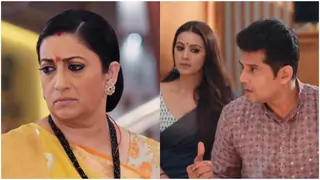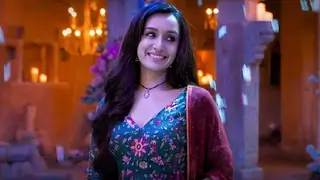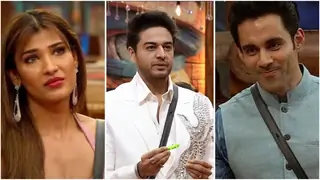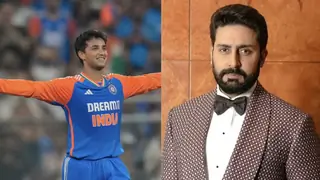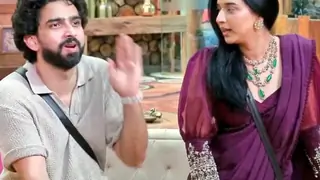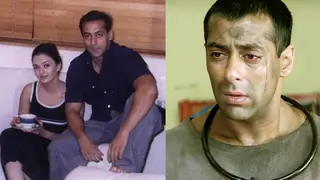Posted:
'Transparency International' has ranked India low down in the 88th position in its corruption perception index.
The very thought of going to a government office to get a job done, brings a smirk on most face. Visions of long queues, paying bribe to get the file moving and waiting for days to meet the 'important babu' or 'neta' is commonplace. And one look at the newspapers everyday merely reconfirms the fact that the bureaucracy in India is one of the most corrupt around.
Is there an end to this system that makes the life of the common man difficult? Should the government be blamed alone, or are citizens equally responsible for aiding and abetting rampant corruption?
Actor Rahul Bose feels, "The reason why corruption is still breeding in India is because people feel they can get away with anything. Our legal system is actually full of loopholes."
Tushar Gandhi, social activist and grandson of Mahatma Gandhi, too feels the same. He says, "Somewhere down the line we are also responsible for supporting a corrupt system. As citizens we too always look for ways to break the law."
Going a bit further one of India's best known entrepreneurs, Kiran Mazumdar Shaw adds, "The huge gulf in our society between the rich and the poor, the educated and the illiterate, makes it difficult to eradicate corruption."
Chandrashekar, member of a political party launched by former IITians says, "Corruption is a by-product of the political and social system. As a society we are only interested in getting our work done by hook or crook and our politicians don't practice what they preach."
Is there a way out? "Yes" feels actress Smriti Irani, who also dabbles in politics. "The buck stops with us. As citizens we should stop paying bribes to get our work done. We need to be aware of various laws and rights guaranteed by the Constitution while facing a corrupt official. People can approach the anti-corruption department for help."
Gandhi quotes his grand-father: "Be the change you want to see in the world." He adds, "No level of legislation can help unless we are ready to change. In India we expect the other person to be honest but when it comes to us we feel the need to be 'practical' which is another name for corruption."
Bose on the other hand feels, "The need of the hour is stringent laws and simplification of procedures which leads to a more transparent system. The government should take the lead but the citizens should honour and follow the initiative."
Shaw whose entrepreneurial initiatives have been hugely successful avers, "Good governance is an index of prosperity and success across society. It is not enough for a handful of companies and a few politicians to demonstrate good governance."
She feels as long as our political system empowers politicians to take unilateral decisions that exclude the people, we will always remain an unempowered society that will succumb to corruption. She adds, "Unfortunately too many of us wish to remain silent and apathetic. Ultimately those who do speak up, pay a price and are often silenced."
The very thought of going to a government office to get a job done, brings a smirk on most face. Visions of long queues, paying bribe to get the file moving and waiting for days to meet the 'important babu' or 'neta' is commonplace. And one look at the newspapers everyday merely reconfirms the fact that the bureaucracy in India is one of the most corrupt around.
Is there an end to this system that makes the life of the common man difficult? Should the government be blamed alone, or are citizens equally responsible for aiding and abetting rampant corruption?
Actor Rahul Bose feels, "The reason why corruption is still breeding in India is because people feel they can get away with anything. Our legal system is actually full of loopholes."
Tushar Gandhi, social activist and grandson of Mahatma Gandhi, too feels the same. He says, "Somewhere down the line we are also responsible for supporting a corrupt system. As citizens we too always look for ways to break the law."
Going a bit further one of India's best known entrepreneurs, Kiran Mazumdar Shaw adds, "The huge gulf in our society between the rich and the poor, the educated and the illiterate, makes it difficult to eradicate corruption."
Chandrashekar, member of a political party launched by former IITians says, "Corruption is a by-product of the political and social system. As a society we are only interested in getting our work done by hook or crook and our politicians don't practice what they preach."
Is there a way out? "Yes" feels actress Smriti Irani, who also dabbles in politics. "The buck stops with us. As citizens we should stop paying bribes to get our work done. We need to be aware of various laws and rights guaranteed by the Constitution while facing a corrupt official. People can approach the anti-corruption department for help."
Gandhi quotes his grand-father: "Be the change you want to see in the world." He adds, "No level of legislation can help unless we are ready to change. In India we expect the other person to be honest but when it comes to us we feel the need to be 'practical' which is another name for corruption."
Bose on the other hand feels, "The need of the hour is stringent laws and simplification of procedures which leads to a more transparent system. The government should take the lead but the citizens should honour and follow the initiative."
Shaw whose entrepreneurial initiatives have been hugely successful avers, "Good governance is an index of prosperity and success across society. It is not enough for a handful of companies and a few politicians to demonstrate good governance."
She feels as long as our political system empowers politicians to take unilateral decisions that exclude the people, we will always remain an unempowered society that will succumb to corruption. She adds, "Unfortunately too many of us wish to remain silent and apathetic. Ultimately those who do speak up, pay a price and are often silenced."






